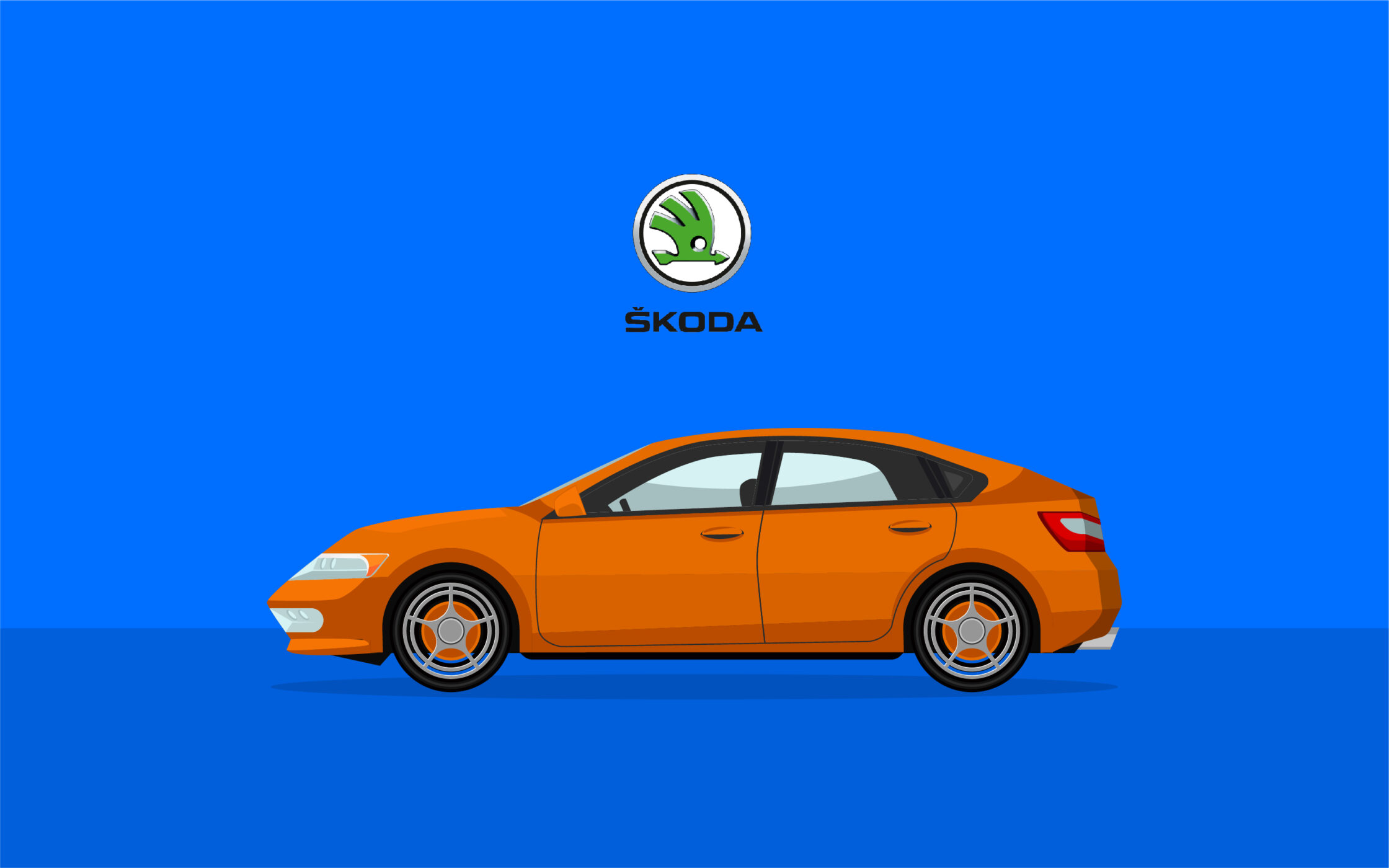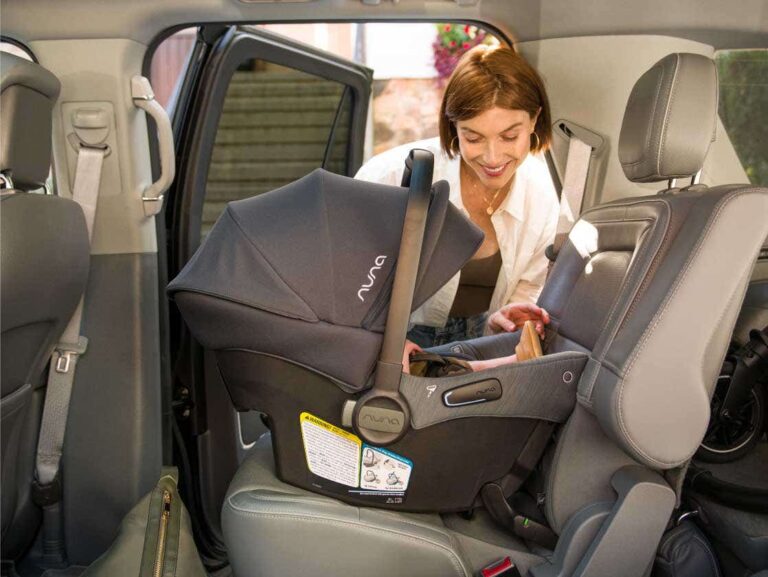What Your Car Brand Says About You
What Your Car Brand Says About You cars.truckstrend.com
In a world brimming with choices, from the clothes we wear to the coffee we drink, our selections often whisper volumes about who we are. Few purchases, however, speak as loudly and as consistently as the vehicle we choose to drive. Far more than mere transportation, your car is a rolling billboard of your personality, values, lifestyle, and even your aspirations. It’s a powerful, albeit often subconscious, statement you make to the world every time you turn the key. Understanding "What Your Car Brand Says About You" isn’t just a fun exercise in social observation; it’s a fascinating dive into consumer psychology, personal identity, and the intricate dance between branding and self-expression.
This article will serve as your comprehensive guide to deciphering the silent language of the road. We’ll explore the various archetypes associated with popular car brands, delve into the psychology behind these choices, and offer practical insights into what your own vehicle might be communicating.
What Your Car Brand Says About You
The Unspoken Language of the Road: The Psychology of Automotive Choices
Before we dissect specific brands, it’s crucial to grasp the fundamental psychological principles at play. Our car choices are rarely purely rational. While fuel efficiency, safety ratings, and price are undeniably important factors, they often exist alongside, or are even overshadowed by, emotional and identity-driven considerations.
Key Insights:
- Status Symbol: Historically, cars have been potent symbols of wealth and social standing. While this remains true for luxury brands, even non-luxury vehicles can confer a sense of belonging or achievement within a specific social group.
- Identity Extension: Your car can be an extension of your self-image. Do you see yourself as rugged, sophisticated, practical, environmentally conscious, or a thrill-seeker? There’s a car brand designed to resonate with each of these identities.
- Aspirational Buying: Sometimes, we buy the car we wish we were, or the car that represents where we aspire to be. This can be a motivator for stretching the budget for a particular brand or model.
- Lifestyle Reflection: A family minivan clearly signals different priorities than a two-seater sports car. Our vehicles reflect our daily routines, hobbies, and the people we transport.
- Conspicuous Consumption vs. Practicality: Some choose to display their success overtly, while others prioritize understated reliability and value. Both choices convey a message.

Benefits of Understanding This:
Recognizing the psychological underpinnings of car choices can enhance self-awareness, improve your understanding of others, and help you make more informed decisions when it comes to your next vehicle purchase. It allows you to consciously choose the message you want to send, rather than sending one inadvertently.
The Prestige Pedigree: Luxury and Performance Brands
For many, a car is not just a means to an end, but an expression of success, a reward for hard work, and a testament to refined taste. Brands in this category often emphasize meticulous craftsmanship, cutting-edge technology, exhilarating performance, and an exclusive ownership experience.
Brands & Their Messages:
- Mercedes-Benz: Often signals established success, a desire for comfort, safety, and timeless elegance. Owners are typically seen as mature, confident, and appreciating of classic luxury and engineering prowess.
- BMW: Implies a passion for driving dynamics, performance, and modern technology. BMW owners are often perceived as ambitious, slightly more aggressive, and keen on enjoying the "ultimate driving machine."
- Audi: Represents sophisticated design, advanced technology, and understated luxury. Audi drivers are often seen as discerning, stylish, and appreciate innovation blended with subtle prestige.
- Lexus: Synonymous with unparalleled reliability within the luxury segment, exceptional comfort, and a focus on customer service. Lexus owners are often practical, value peace of mind, and appreciate a serene, refined driving experience without overt flashiness.
- Porsche: The ultimate statement of performance, precision engineering, and driving passion. Porsche owners are often enthusiasts, thrill-seekers, and successful individuals who prioritize the driving experience above all else.
- Rolls-Royce/Bentley: The pinnacle of opulence, exclusivity, and bespoke luxury. These brands scream ultra-wealth, status, and a life of unparalleled indulgence.
Considerations & Challenges:
While these brands offer immense appeal, they come with higher purchase prices, increased maintenance costs, and often significant depreciation. The challenge is ensuring the "statement" aligns with your financial reality and genuine needs, rather than solely fulfilling an image.
The Pragmatist’s Pick: Reliability and Value Brands
Not everyone seeks to project an image of opulence. For a large segment of the population, a car is a dependable tool, a safe haven for the family, and a smart financial decision. These brands prioritize durability, fuel efficiency, low maintenance costs, and high resale value.
Brands & Their Messages:
- Toyota: The epitome of reliability, longevity, and common sense. Toyota owners are often perceived as practical, financially savvy, family-oriented, and valuing peace of mind over flash. They want a car that simply works for years.
- Honda: Similar to Toyota, but often with a slight edge in driving dynamics and a reputation for clever engineering. Honda owners are practical but might appreciate a bit more refinement or sportiness in their everyday drive.
- Subaru: Strongly associated with safety, all-wheel drive capability, and an active, outdoorsy lifestyle. Subaru drivers are often seen as adventurous, environmentally conscious, community-minded, and prioritizing safety in all weather conditions.
- Hyundai/Kia: Represent immense value, rapid quality improvement, and comprehensive warranties. Owners are often seen as smart shoppers who appreciate modern features and stylish design without breaking the bank. They challenge preconceived notions of budget brands.
- Mazda: Known for combining reliability with an engaging driving experience and premium-feeling interiors at a non-premium price. Mazda owners are discerning, appreciate good design, and enjoy driving without needing outright luxury.
Tips for the Practical Buyer:
Focus on the total cost of ownership, including insurance, fuel, and maintenance, in addition to the initial purchase price. These brands offer excellent long-term value, aligning with a responsible and pragmatic mindset.
The Adventurous & Rugged Explorer: Off-Road and Utility Brands
For those who view the road as merely a suggestion, or whose daily lives demand robust capability, certain brands stand out. These vehicles are built for durability, towing, off-road prowess, and often symbolize freedom, independence, and a connection to the great outdoors.
Brands & Their Messages:
- Jeep: The quintessential symbol of adventure, off-road capability, and a free-spirited lifestyle. Jeep owners are often seen as outdoorsy, rebellious, individualistic, and ready for anything. It’s a lifestyle choice as much as a vehicle.
- Land Rover/Range Rover: Represents rugged capability blended with luxury. Owners are often affluent adventurers who demand both off-road prowess and sophisticated comfort. They suggest a life of exploration without sacrificing refinement.
- Ram/Ford F-Series/Chevrolet Silverado (Pickup Trucks): These brands signify hard work, utility, patriotism, and often a rural or blue-collar identity. Owners are practical, self-reliant, and value immense towing capacity and durability for work or play.
- Tesla (less about ruggedness, more about pioneering): While not rugged in the traditional sense, Tesla represents innovation, environmental consciousness, and a forward-thinking mindset. Owners are often early adopters, tech enthusiasts, and individuals who want to be at the forefront of the future.
Potential Challenges:
These vehicles can be less fuel-efficient, more challenging to maneuver in urban settings, and may have higher maintenance costs for specialized parts or off-road wear and tear.
The Niche & Novel Narratives: Unique and Eco-Conscious Brands
Beyond the broad categories, some brands carve out distinct niches, appealing to specific values, design sensibilities, or environmental commitments. These choices often reflect a desire for individuality or a strong alignment with a particular ethos.
Brands & Their Messages:
- Volvo: Strongly associated with safety, minimalist Scandinavian design, and increasingly, environmental responsibility. Volvo owners are often seen as intellectual, family-focused, safety-conscious, and valuing understated elegance.
- Mini: Projects a playful, urban, and quirky personality. Mini drivers are often seen as stylish, individualistic, and enjoying a fun, nimble driving experience in a compact package.
- Volkswagen: While a mainstream brand, it holds a unique position, often associated with a certain European charm, reliability, and an "everyman" appeal. Owners might value classic design, solid engineering, and a no-nonsense approach.
- Electric Vehicle (EV) Brands (beyond Tesla, e.g., Rivian, Lucid): Choosing a lesser-known EV brand often signals a deep commitment to sustainability, an interest in cutting-edge technology, and a desire to stand out from the mainstream.
How to Interpret:
For these brands, the message is often more nuanced. It’s not just about what the car is, but what it represents in terms of lifestyle, values, or aesthetic preferences. Look for the specific design cues, marketing messages, and community surrounding the brand.
Decoding Your Drive: How to Interpret Automotive Signals (and Your Own)
Understanding what your car brand says about you isn’t about rigid stereotypes, but about general perceptions and the conscious or subconscious choices that lead to a purchase.
Practical Advice and Actionable Insights:
- Self-Reflection is Key: Why did you choose your current car? Was it purely practical, a dream realized, an inherited vehicle, or a compromise? Your reasons are more telling than any stereotype.
- Beyond the Stereotype: While generalizations exist, remember that people are complex. A CEO might drive a humble sedan for anonymity, or a student might drive a luxury car inherited from parents. Don’t pigeonhole yourself or others based solely on their vehicle.
- Consider the Context: Geographic location (city vs. rural), economic status, age, and family situation all play a significant role. A pickup truck in Texas sends a different message than one in Manhattan.
- Your Car as an Aspiration: If your current car doesn’t align with your ideal self, consider what your next vehicle could say. Do you want to project more success, more adventure, or more environmental responsibility?
- Match Car to True Self: When buying a car, resist the urge to buy purely for image. Choose a vehicle that genuinely fits your lifestyle, budget, and authentic personality. The best statement is one that feels true to you.
- The "Why" Matters More Than the "What": The deeper meaning lies in why you chose your car. Did you prioritize safety for your family, raw power for weekend drives, or simply the most economical option available? These motivations are the truest reflection of your values.
Car Brand Archetypes and Their Perceived Value
To further illustrate the unspoken language of car brands, here’s a table summarizing common perceptions and general price tiers.
| Car Brand | Typical Message / Archetype | General Price Tier |
|---|---|---|
| Toyota | The Reliable Pragmatist: Sensible, dependable, long-term thinker, family-oriented, value-conscious. | Entry-Level to Mid-Range |
| Honda | The Savvy & Practical: Smart, reliable, efficient, slightly more engaging than Toyota, good resale. | Entry-Level to Mid-Range |
| Ford (Mainstream) | The All-American Workhorse: Practical, traditional, loyal, often tied to work or family utility (especially trucks). | Entry-Level to Mid-Range |
| Subaru | The Adventurous & Safe: Outdoorsy, safety-conscious, community-minded, practical, ready for any weather. | Mid-Range |
| Hyundai/Kia | The Value Innovator: Smart shopper, tech-savvy, modern, appreciates features and warranty, budget-conscious but stylish. | Entry-Level to Mid-Range |
| Mazda | The Understated Enthusiast: Appreciates driving dynamics, design, and quality without overt luxury. | Mid-Range |
| Jeep | The Free Spirit: Adventurous, outdoorsy, independent, rugged, loves exploration and off-roading. | Mid-Range to Premium |
| Volkswagen | The European Everyman: Practical, appreciates solid engineering, understated style, perhaps a touch of nostalgia. | Entry-Level to Mid-Range |
| Volvo | The Safety-Conscious & Sophisticated: Intelligent, family-focused, design-aware, values safety and Scandinavian minimalism. | Premium to Luxury |
| BMW | The Ambitious Driver: Performance-oriented, success-driven, enjoys the thrill of driving, modern luxury. | Luxury to Premium Performance |
| Mercedes-Benz | The Established Achiever: Classic luxury, comfort-focused, seeks prestige, refinement, and timeless elegance. | Luxury to Premium Performance |
| Audi | The Tech-Savvy & Stylish: Appreciates modern design, advanced technology, refined luxury, understated prestige. | Luxury to Premium Performance |
| Lexus | The Reliable Luxury: Values comfort, quietness, exceptional service, and peace of mind over overt flash. | Luxury |
| Porsche | The Driving Purist: Passionate about performance, precision, and the ultimate driving experience, successful enthusiast. | Premium Performance to Exclusive |
| Tesla | The Future-Forward Pioneer: Tech-enthusiast, environmentally conscious, early adopter, innovative, status through tech. | Premium to Luxury |
| Land Rover/Range Rover | The Affluent Adventurer: Combines rugged capability with high luxury, enjoys outdoor pursuits with refinement. | Luxury to Exclusive |
Frequently Asked Questions (FAQ)
Q1: Is what my car brand says about me always true?
A1: Not absolutely. These are generalizations and stereotypes. While a brand attracts a certain demographic, individual circumstances (e.g., inherited car, budget constraints, specific model choice within a brand) can significantly alter the message. It’s more about perceived identity than absolute truth.
Q2: Can my car choice change what it says about me over time?
A2: Yes, absolutely. As your life circumstances, financial situation, family needs, and personal values evolve, so too might your automotive choices. A young professional might start with an economical sedan and later upgrade to a luxury SUV as their career advances or family grows.
Q3: Does the specific model matter more than the brand?
A3: Often, yes. While the brand sets a general tone (e.g., "BMW means performance"), the specific model refines it (e.g., a BMW M3 says something different than a BMW X5). A Ford F-150 sends a different message than a Ford Mustang, even though both are Fords.
Q4: What if I just bought the cheapest car available? What does that say?
A4: Choosing the cheapest reliable car often says you are highly practical, budget-conscious, and prioritize functionality over image or luxury. It suggests financial prudence and a focus on getting from A to B efficiently without unnecessary expense.
Q5: How accurate are these stereotypes, really?
A5: They are generalizations based on market research, brand positioning, and consumer behavior trends. They serve as useful archetypes for understanding broad patterns, but they should not be used to make definitive judgments about individuals. People are complex, and their motivations for car ownership are equally varied.
Conclusion
Your car is undeniably more than just a mode of transport; it’s a profound statement, a silent narrator of your life’s priorities and passions. From the sleek lines of a luxury sedan whispering success, to the rugged stance of an SUV proclaiming adventure, or the humble efficiency of a compact car signaling practicality, every vehicle communicates. Understanding "What Your Car Brand Says About You" offers a unique lens through which to view consumer psychology and personal identity. It encourages us to look beyond the chrome and the horsepower, to the deeper motivations that drive our choices, and in doing so, gain a clearer picture of ourselves and the world around us. So, the next time you slide behind the wheel, consider the story your car is telling – and whether it’s the one you truly want to tell.



